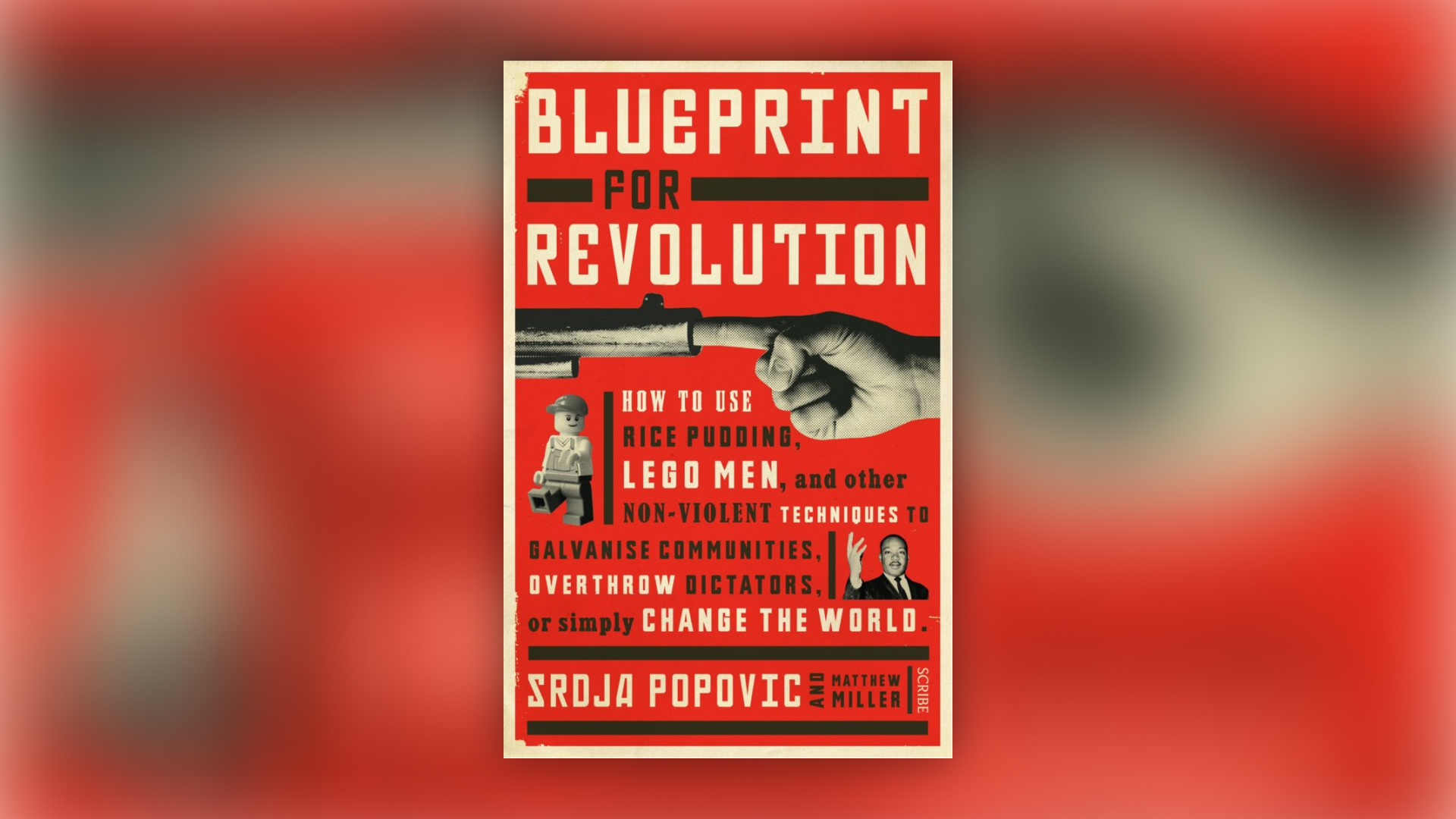Resources
Blueprint For Revolution by Srdja Popovic and Matthew Miller
How to win campaigns and remove dictators with Lego, cheese and other tactics.
Stephanie Wong | 25 Oct 2017

Image credit: Act Build Change.
This post uses affiliate links which means that when you buy an item using the link provided we receive a portion of the sale. Affiliate links are marked with a ⟡
In just two years, the clenched fist Otpor! grew from a youth protest group into a radical nationwide revolution. Srdja Popovic, leader of Otpor! a storytelling genius gives us his lessons from leading a revolution and training activists worldwide to reveal how we win.
Three takeaways
- Humour can transform fear into fighting courage.
- Dream big, but start small.
- Non-violence is always more effective against violence.
Laughter inspires courage
In the age of the internet and other distractions, laughter was our greatest weapon.
Srdja tells us to practice laughtivism. A terrible term granted, but Srdja spends much of the book demonstrating that it can be very effective against violent power over dictators. From resistance turkeys on the streets of Belgrade to hiding radios broadcasting revolution in the dog poo of Aleppo, humour has an effective way of making the feared look ridiculous.
Have a big vision and start small
We just wanted a normal country with cool music.
Dream a big vision of tomorrow rooted in specific things people want. Once you have that vision, start small. Act on things you can win without getting killed, like taxi go-slows in Pinochet's Chile or carrying oranges to symbolise resistance in Ukraine. Build your way up till you have the people power necessary to bring dictators down. This means a lot of people, smart strategies and a specific target.
Food is a good place to start
Food has a special way of getting people to come together.
According to Srdja salt, tea, and cottage cheese are much more effective tools of revolution than guns and bombs. From Gandhis salt marches in defiance of British taxation to the Israeli insurance salesman who got a nation behind unjust cottage cheese capitalism, food can be a good starting point to build action and dismantle highly militarised regimes.
If food doesnt work get dirtier
Rally the people who already more or less believe in what you have to say. That is a great way for coming tenth at anything (as Harvey Milk initially did).
Harvey Milk, the San Francisco politician and gay rights activist, had to fail many times before he realised galvanising people around dog poo, is much more effective than talking about big ideals that most people wont relate to. Once you get the majority of people on side, they will be ready to listen and work with you to take on the harder, important battles.
Violence is pragmatically un-effective if you have less power
If youre up against David Beckham, you dont want to meet him on the soccer field. You want to play him at chess. Taking up arms against a dictator is silly.
Most of the time, when people have a lot more weapons than you do, you can’t beat them with violence. Even when you do, in those David and Goliath bloodbath moments, the cost of living means you lose a great deal either way. Srdja argues in favour of non-violent resistance, not because violence is morally wrong, but because non-violence works better. Aside from Srdjas’s own experiences, he shares stories from the lives of Nelson Mandela, Gandhi and others to drive his point home that rice pudding or lego is a much better tool than a sword or bomb.
Most revolutions, for now, do not have a happy ending
Successful movements must have the patience to keep working hard even when the lights and cameras have moved on.
This book is so refreshingly easy to read. It is inspiring and makes you want to jump off the sofa and out into the streets, but few revolutions mentioned in this book end well. Srdja does not avoid this horrible fact and gives the painful challenges of many broken revolutions. His last points, said with great urgency, are to help us not fall into the same devastation: invest everything in the building and maintaining unity, and know when you have won, declaring victory too early will unravel your efforts fast (Egypt). Cast the net of your base wide, or it will become an elite club that will fail to bring others with you (Occupy) and do not divert from the message (FEMEN).